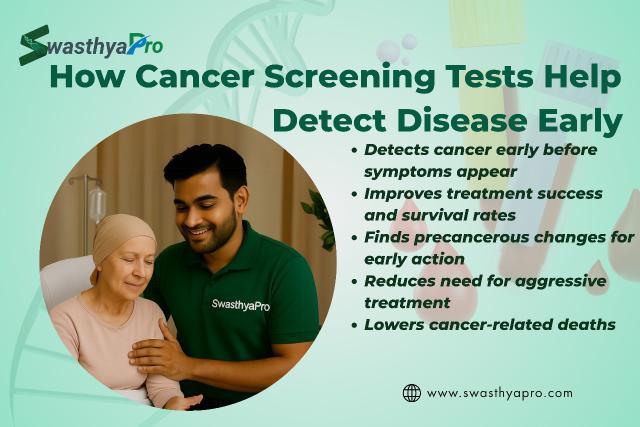Cancer Screening Test for Men: What to Expect

Introduction: Why Men Shouldn’t Ignore Screening
Many men avoid doctor visits unless they feel sick. But when it comes to cancer, waiting for symptoms can be risky. A cancer screening test helps find problems early—before any signs appear. For men, regular screening can make a big difference in detecting cancer early and improving outcomes. Knowing what to expect from these tests can remove fear and help men take charge of their health.
Common Screening Tests for Men
Several types of cancer screening test are specifically recommended for men. Prostate cancer screening is one of the most well-known. It often involves a simple blood test called PSA (Prostate-Specific Antigen) and sometimes a physical exam. Colon cancer screening is also vital and usually starts around age 45. This can be done through stool-based tests or a colonoscopy. Lung cancer screening may be recommended for older men with a history of smoking. Each cancer screening test is designed to catch cancer early, when it’s most treatable.
When and How Often to Get Screened
The timing of a cancer screening test depends on age, personal history, and family background. For example, prostate cancer screening often starts around age 50, or earlier if there’s a family history. Colon cancer screening is advised every 10 years if the colonoscopy is clear. Men at high risk—for example, those who smoke or have close relatives with cancer—may need to begin screening earlier or have it done more frequently. Your doctor will guide you based on your individual needs.
Breaking the Stigma Around Screening
Unfortunately, some men still believe that a cancer screening test is something to avoid or fear. But most tests are quick, painless, and potentially life-saving. Talking openly about health and screening is an important step in removing the stigma. Taking care of your body doesn’t make you weak—it shows strength and responsibility. A simple cancer screening test today could prevent years of difficult treatment later.
Understanding the Risks and Benefits
Like any medical procedure, a cancer screening test has both benefits and possible risks. Sometimes, results can lead to further tests, even if the findings aren’t serious. But the benefits of early detection far outweigh the risks. When cancer is caught early, treatments are more effective, recovery is quicker, and the survival rate is much higher. Being informed about the pros and cons helps men make confident choices about their health.
Supporting Men Through the Process
Men don’t have to face health concerns alone. Friends, family, and healthcare providers can offer encouragement and support. If you're nervous about taking a cancer screening test, talk to someone you trust or ask your doctor for details about the procedure. Knowing what to expect can reduce anxiety and make the experience easier. Encouraging conversations can also inspire other men to take their health seriously.
Conclusion: Take Action for a Healthier Future
Regular health checks, including a cancer screening test, are an important part of staying healthy. Don’t wait until something feels wrong. If you're a man over 40—or have a higher risk—talk to your doctor about which screenings you need and how often to get them. Taking this step shows that you care about your future. A cancer screening test might be simple, but its impact can be life-changing.

- Art
- Causes
- Best Offers
- Crafts
- Dance
- Drinks
- Film
- Fitness
- Food
- Jogos
- Festival
- Gardening
- Health
- Início
- Literature
- Music
- Networking
- Outro
- Party
- Religion
- Shopping
- Sports
- Theater
- Wellness



